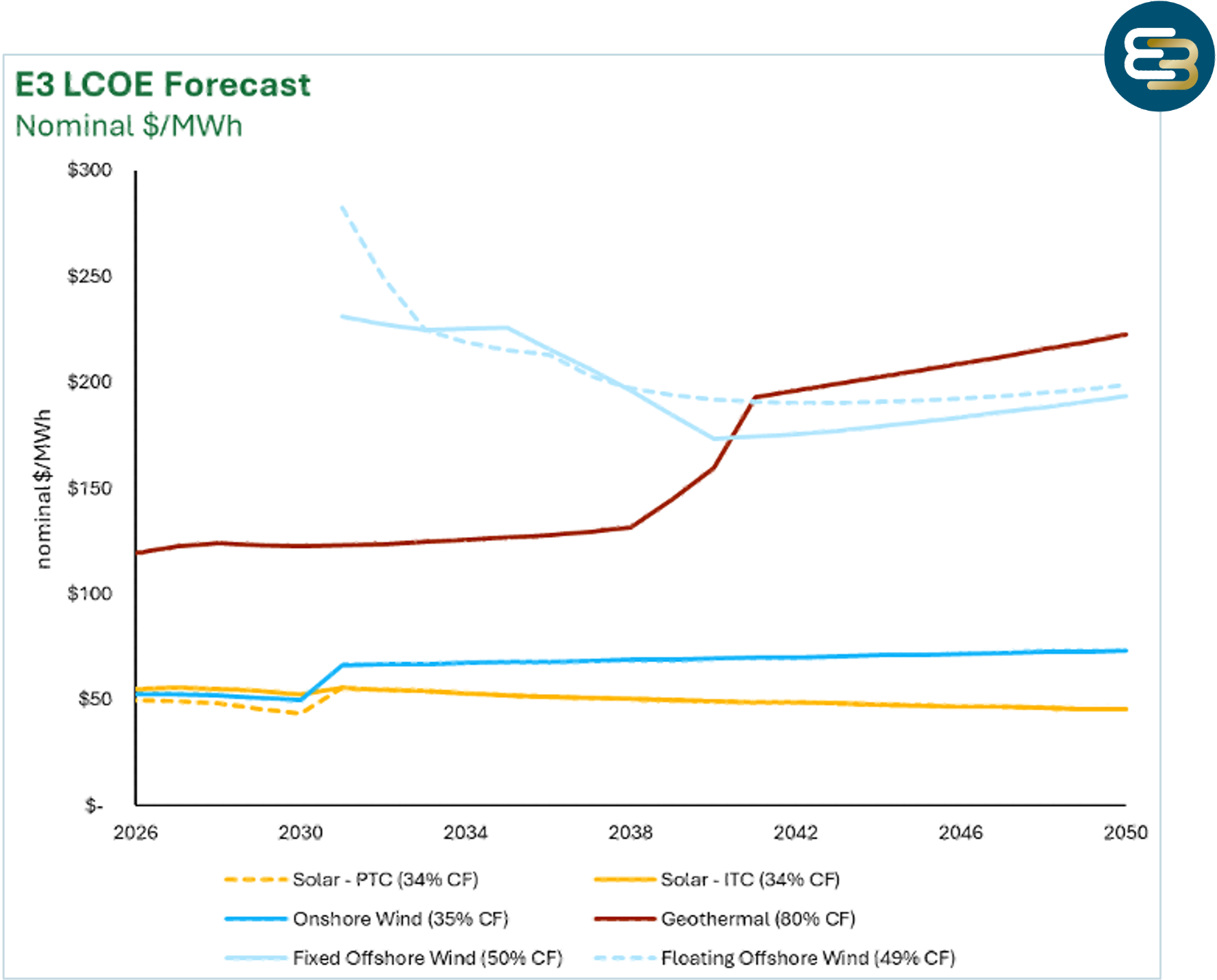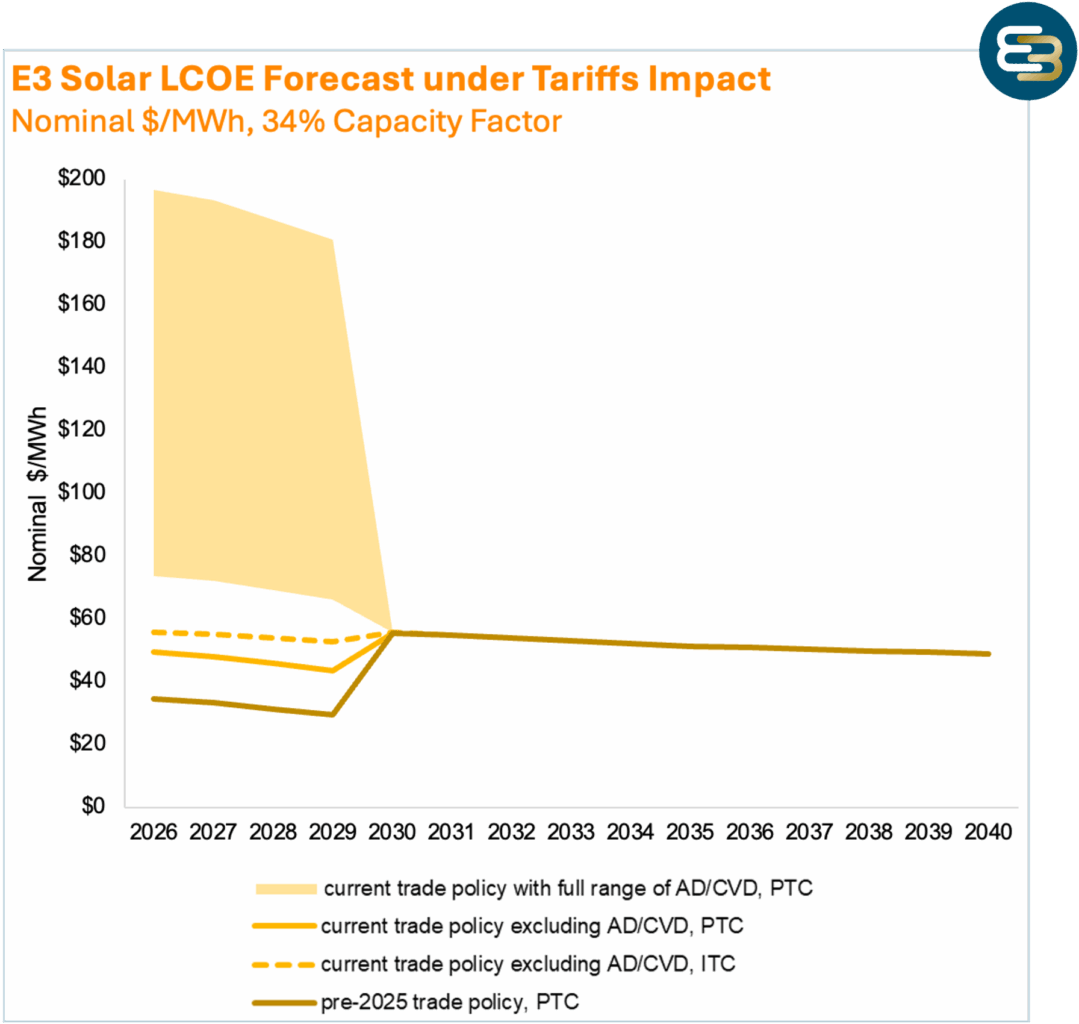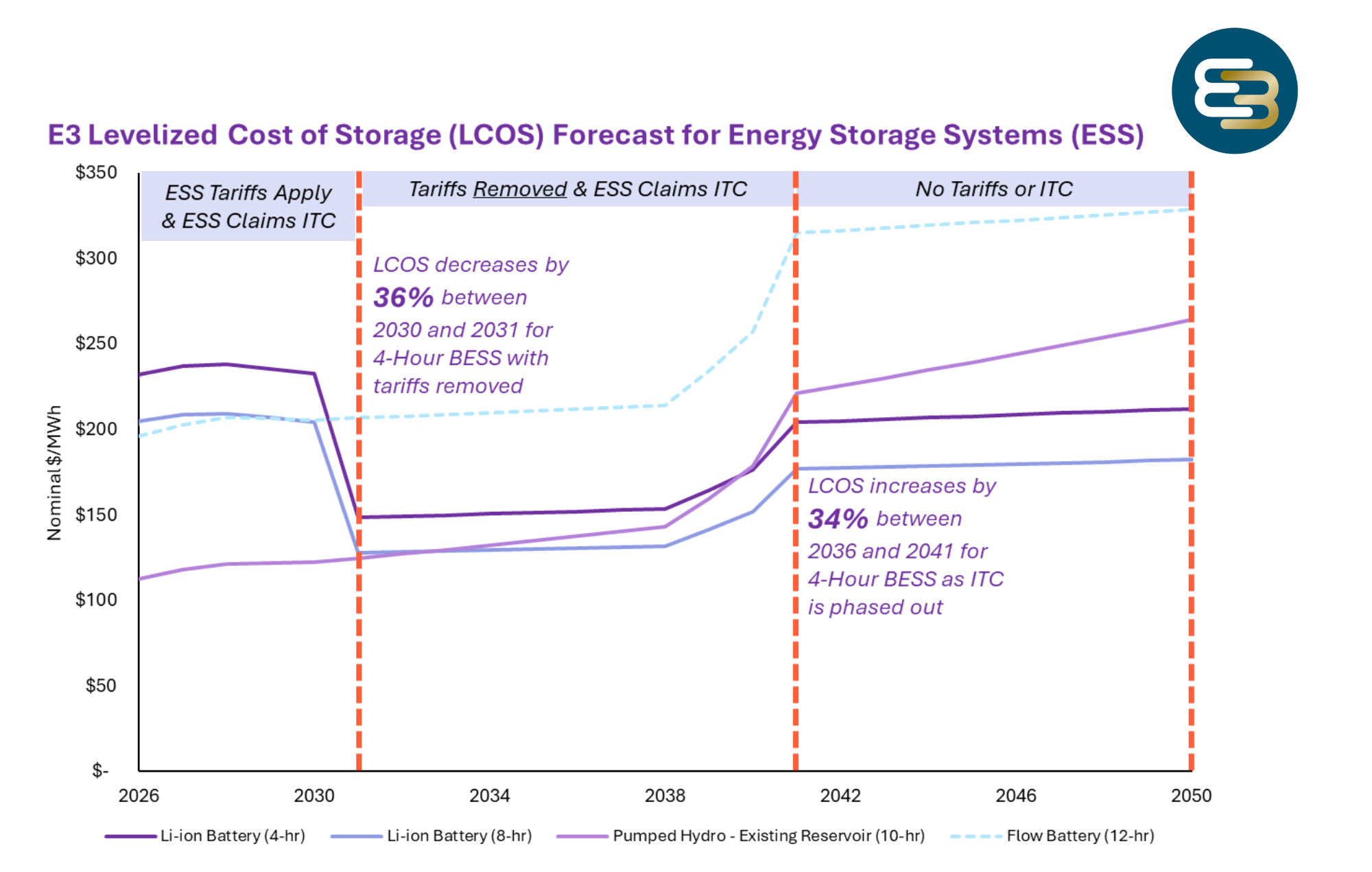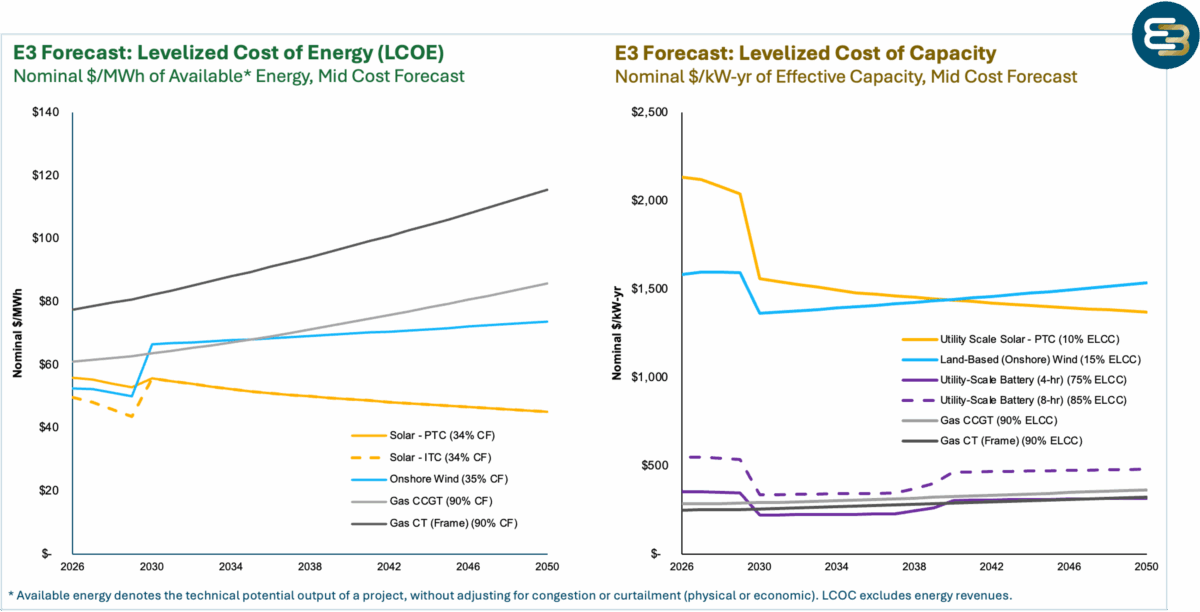
The “One Big Beautiful Bill Act” (OBBBA, or FY25 Budget Reconciliation Bill), signed into law on July 4, 2025, is expected to have a significant impact on resource costs for years to come. In parallel, trade policy uncertainty – most notably, evolving tariff adjustments from the current administration – is creating a wide range of possible cost outcomes across technologies. In response, E3 has updated its RECOST tool for Q3 2025 to reflect these policy developments. This includes resource-specific tax credit qualification timelines under our latest safe harbor commentary, as well as tariff impact estimates that reflect tariffs specific to each component and supply chain origin country for each resource.
In a rapidly evolving policy environment, RECOST is a flexible and comprehensive tool for all market participants to evaluate the impacts of different policy and economic shocks on contract pricing and capacity addition outcomes. Developed by E3 and in use for over a decade, RECOST is a discounted cash flow model that calculates levelized fixed costs and levelized cost of energy across a wide range of resource types and project configurations. E3 has applied RECOST for analyses across public sector agency, utility, investor, and developer clients, and we continuously update the RECOST model to reflect changes in tax incentives, trade policy, financing conditions, and technology costs. For example, RECOST incorporated updated assumptions for new-build gas plants in Q1 2025, ahead of broader market revisions.
In addition to capturing the latest policy changes, RECOST now reflects current market financing conditions across technologies. As the policy environment continues to evolve, E3 is continuing to monitor the latest changes and will be updating RECOST with the latest data moving forward. This will be especially important in the near term as guidance on safe harbor for new projects is provided and clarified.
Key Takeaway: costs are up in general, but wind and solar are the biggest losers and near-term economics now favor gas over zero-carbon resources.
Wind and solar costs are most impacted by OBBBA changes to federal tax incentives for new clean energy generation. Earlier expiration of production and investment tax credits for these technologies casts significant uncertainty on the economics of these resources in the 2030s.

Under current trade policy, solar, out of all resources reviewed by E3, is exposed to the widest range of possible cost impacts. Total solar CAPEX (upfront costs) could increase by 30%, 79%, 221%, or 326% depending on whether minimum, average, or high Anti Dumping / Countervailing Duty (AD/CVD) rates are assumed. The levelized cost of solar energy could increase by 44% to 470% under these same conditions.

Battery storage costs are vulnerable to tariff impacts, given that the current supply chain for lithium-ion batteries is highly dependent on imports from China.

For system planning purposes, two key impacts emerge from recent policy perturbations. First, new gas combined cycle plants may be able to out-compete new wind and, under the worst tariff conditions, new solar plants in terms of LCOE at high capacity factors. This finding is likely to impact new build decisions through 2029 where projects are not already locked in. Second, unless battery storage supply chains adapt, gas CC and CT plants will possess an advantage over new battery storage across that same timeframe. Both findings are contingent on the combined impact of tariffs and FY25 Reconciliation Bill credit changes. If tariffs are removed, wind and solar retain their LCOE advantage over new gas plants, and four-hour battery storage regains a cost advantage as a reliability resource.

For more information on E3’s latest perspectives on resource costs, see our public report here. Review our RECOST model and report package available for purchase here.


